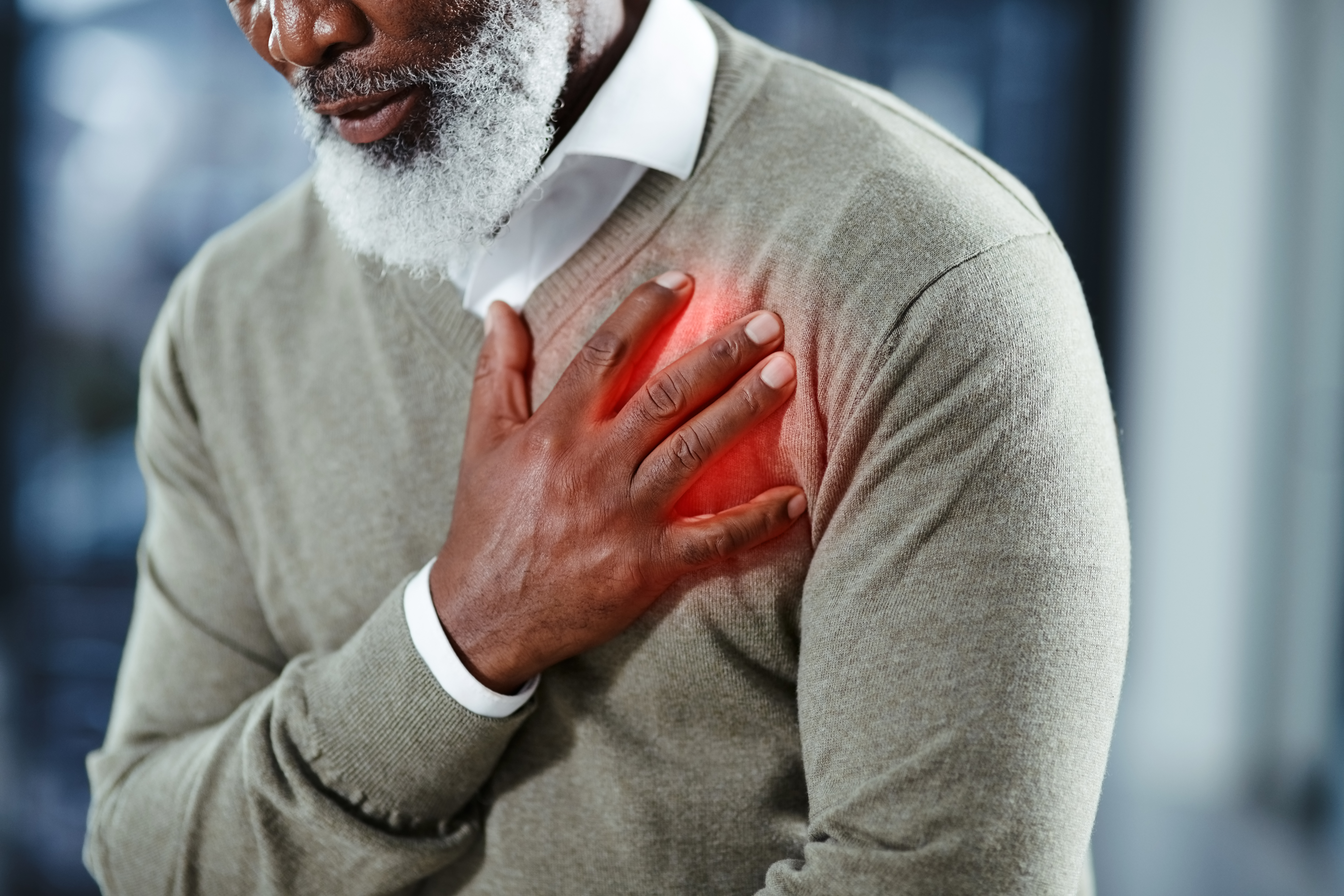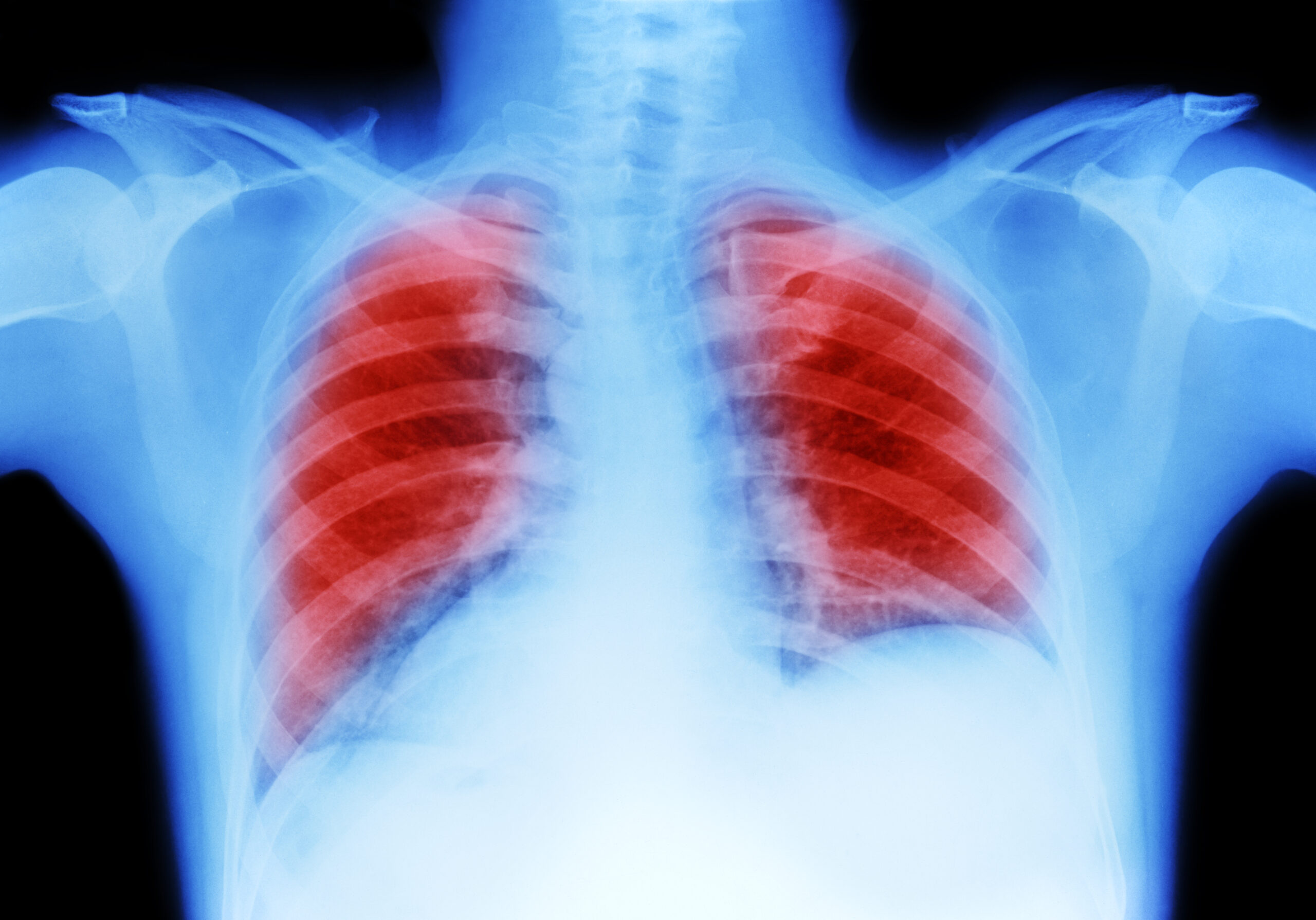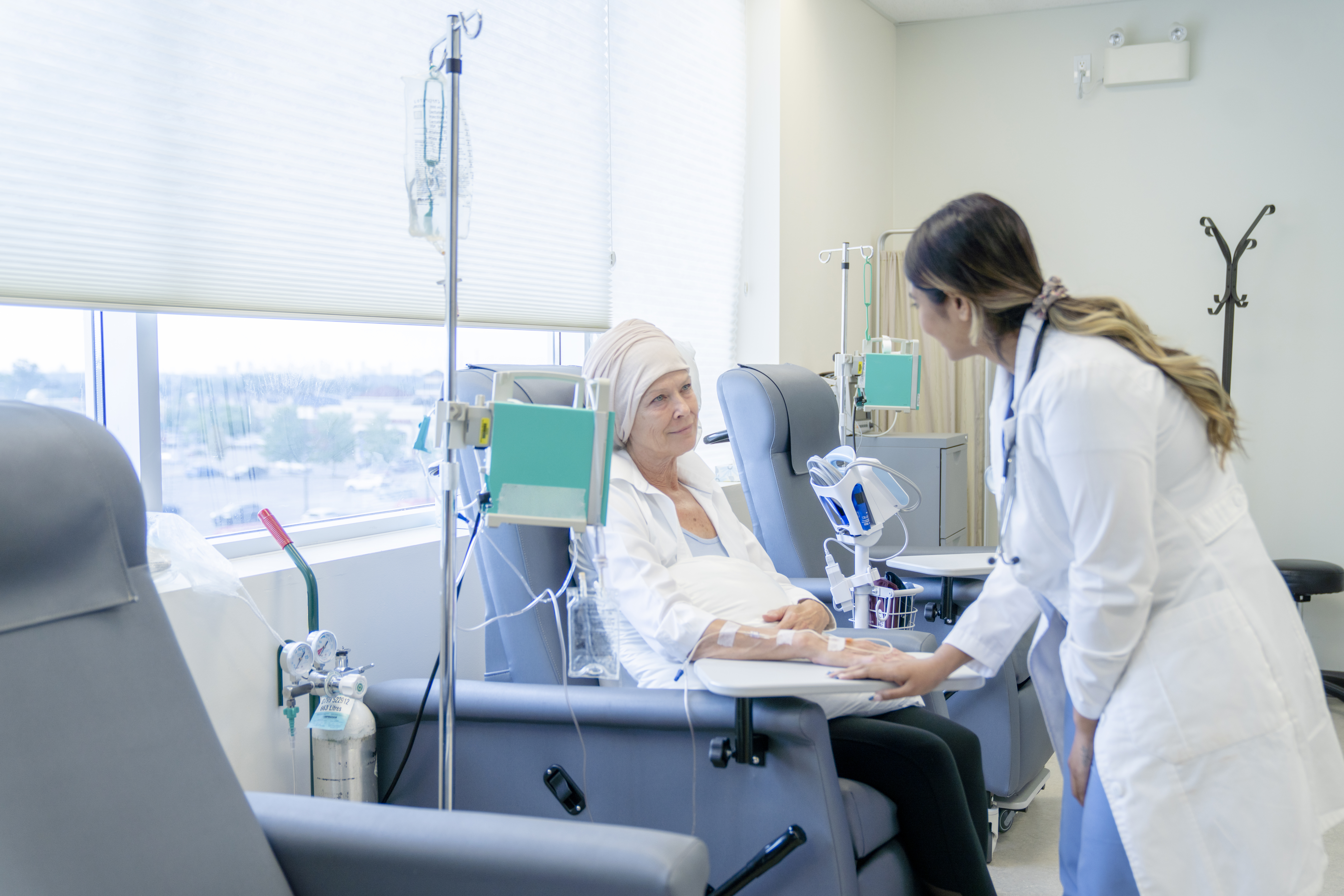Mesothelioma Symptoms
Like many other cancers, mesothelioma can cause various adverse reactions, called symptoms. Patients experience different types and degrees of symptom serverity based on several variables. Things like stage, location, age, and overall health can affect a patient's symptoms.

What are the Main Symptoms of Mesothelioma?
Patients with any of the mesothelioma types may take decades to display the signs after being exposed to asbestos or other carcinogens. Asbestos cancer symptoms can take several decades to develop and become discovered. Medical professionals often refer to this period as the latency period which typically lasts anywhere from 10-60 years.
Because mesothelioma shares symptoms with many other serious diseases, it can be misdiagnosed or mistaken for another illness. Because of these misdiagnoses and the long latency period, mesothelioma is often not diagnosed until the advanced stages. Late-stage diagnoses can negatively impact mesothelioma prognosis and treatment options.
Typical symptoms and signs of mesothelioma include shortness of breath and lung pain, but they can vary greatly. Conditions like the type of mesothelioma and the stage of cancer affect the symptoms of this illness.
Symptoms by Site
There are four main sites of mesothelioma: the pleura, peritoneum, pericardium, and testicles. Although some symptoms can be similar, each type of mesothelioma can vary in signs and symptoms. The location of tumors influences the symptoms a patient may experience throughout the stages of mesothelioma.
Pleural Mesothelioma Symptoms
The pleura is the area affected by pleural mesothelioma. This form of mesothelioma affects the lining of the lungs and chest. Many symptoms of pleural mesothelioma include chest and respiratory pain, as these are the primary area where the tumor develops. Although both cancers affect the lungs, mesothelioma is different from lung cancer.
- Anemia
- Back pain
- Blood clots
- Body aches
- Chest pain
- Coughing up blood
- Difficult swallowing
- Difficulty breathing
- Fatigue
- Fever/night sweats
- Fluid buildup around the lungs
- Hoarseness
- Loss of appetite
- Lumps under the skin
- Persistent dry cough
- Shoulder pain
- Weight loss
- Wheezing
Peritoneal Mesothelioma Symptoms
Pericardial mesothelioma affects the abdomen lining and accounts for 20 percent of all mesothelioma cases. As the tumors develop and spread throughout the abdomen, it becomes a primary site for symptoms.
- Abdominal pain
- Abdominal swelling/distension
- Anemia
- Bloating
- Body aches
- Bowel obstruction
- Constipation
- Diarrhea
- Fatigue
- Fluid buildup around the lungs
- Hernia
- Loss of appetite
- Nausea
- Seizures
- Shoulder pain
- Shortness of breath
- Vomiting
- Wheezing
- Weight loss of gain
Pericardial Mesothelioma Symptoms
Mesothelioma located in the pericardium is rare, accounting for less than 5 percent of cases and affecting the heart’s lining. The early mesothelioma symptoms are associated with the heart as the tumor begins here. Later, respiratory issues appear as the tumors spread throughout the chest.
- Arrhythmia
- Body aches
- Chest pain
- Cough
- Fatigue
- Fever/night sweats
- Fluid buildup around the heart
- Heart murmur
- Heart palpitations
- Shortness of breath
Testicular Mesothelioma Symptoms
Mesothelioma found in the tunica vaginalis is rare, accounting for fewer than 5 percent of all cases. Because the cancer is uncommon, the medical community knows very little about this cancer and its symptoms.
- Fluid buildup in the scrotum
- Testicular mass
- Testicular swelling
Symptoms by Stage
In addition to the location of the tumors, the stage of mesothelioma can significantly affect the symptoms a patient may experience. The symptoms vary based on the position and type of mesothelioma, but there are similar symptoms based on the stage.
Stage I (1)
There are very few symptoms during the early stages of mesothelioma, and the tumors are localized and have not spread yet. The early signs of mesothelioma typically include a dry cough, chest or stomach pain, shortness of breath, fever, body aches, fatigue, and weight loss.
Stage II (2)
Symptoms throughout stage 2 are similar to those mentioned in stage 1. During stage 2, the tumors typically have not spread, and symptoms are not generally present. The signs in this stage are also relatively mild if they appear at all.
Stage III (3)
Stage 3 is considered an advanced stage of mesothelioma, and symptoms typically become more apparent. Symptoms may include dry coughing or coughing up blood, chest and stomach pain, shortness of breath, fever, night sweats, body aches, fatigue, weight loss, anemia, blood clots, and fluid buildup around the organs. By stage 3, the tumors generally have metastasized to other body organs, lymph nodes, and blood vessels.
Stage IV (4)
This stage is considered the most advanced, and the symptoms become severe. During late-stage pleural mesothelioma, a patient may experience nausea, vomiting, hernia, bowel issues, or seizures. In advanced stages of pericardial mesothelioma, patients exhibit heart complications like arrhythmia or heart palpations. Due to the rarity of pericardial and testicular mesotheliomas, symptoms usually begin near death or after the patient has died.
What Else Can Affect Symptoms?
Other than location and stage, many different facets can affect the symptoms a mesothelioma patient may experience.
Metastasis
Not every patient experiences a benign tumor and might, instead, experience malignant mesothelioma symptoms. When cancer spreads from the original tumor site to other body parts or metastasizes, a patient will experience additional symptoms. This spread of tumors leads to an onset of new symptoms.
Type of Asbestos
Although mesothelioma symptoms expose themselves gradually, the type of asbestos a patient was exposed to can speed up or slow down the onset of symptoms. Exposure to varying kinds of asbestos, like crocidolite, can cause mesothelioma symptoms to present earlier and more acutely.
Duration of Exposure
Patients exposed to asbestos or other carcinogens will likely display symptoms sooner than usual. The amount of time exposed can affect the symptoms a patient may experience. Even if exposed for a short period, if a patient experiences a larger-than-average amount of asbestos, they will likely experience an early onset of symptoms.
How to Manage Symptoms
Mesothelioma symptoms can range from uncomfortable to life-threatening, but patients can do some things to manage the symptoms and relieve pain.
Steroids
Throughout a patient’s mesothelioma journey, a medical professional may recommend steroids to treat symptoms and prevent complications. Many patients with mesothelioma experience side effects like fatigue, muscle weakness, loss of appetite, and weight loss. Steroids can typically increase energy and appetite to combat these symptoms. By using medically prescribed steroids, patients can remain comfortable throughout treatment stages.
Pain Medicine
Over-the-counter medicines may relieve mild symptoms. A doctor might prescribe more potent pain relievers to address worsening symptoms for more intense relief.
Lifestyle Changes
Factors like diet, exercise, weight management, and adequate sleep can keep a patient healthy during treatment and positively influence prognosis. Smoking however can worsen symptoms, especially those that are respiratory, so it’s recommended for patients to quit while you can.
Treatments for Symptoms
A patient may undergo several medical therapies to cure the disease or relieve symptoms. Surgery, chemotherapy, and radiation are three primary modes of treatment for mesothelioma.
Surgery
To remove the tumor entirely, a doctor may recommend surgery. The doctor makes an incision during mesothelioma surgery and removes the affected tissues with a surgical tool. The area of surgery is dependent on the location of mesothelioma. Chemotherapy and radiation are often recommended if the medical professional cannot entirely remove the tumor.
Chemotherapy
During chemotherapy, a medical professional injects anti-cancer medicine into the body. The medication can be injected systematically throughout the body or regionally to a specific body area. The doctor administers the treatment differently depending on the location and stage of mesothelioma.
Radiation
Medical professionals apply high-energy x-rays to attack tumors deep within the body during radiation. The x-ray beams are typically difficult to control; therefore, radiation is generally utilized after surgery or chemotherapy. There are two main types of chemotherapy, external beam radiation therapy (EBRT) and brachytherapy.
Mental Health Symptoms
It is entirely normal to feel depressed, anxious, or worried when diagnosed with mesothelioma cancer. These feelings affect each patient differently throughout the stages of cancer. Gaining support through family and friends or support groups can benefit a patient’s mental health.


